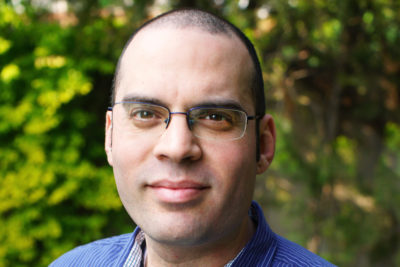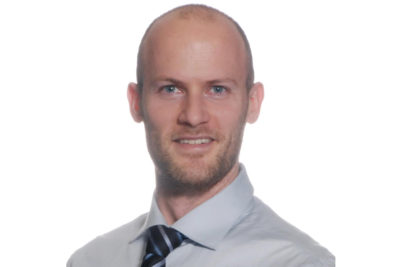Chronic Pain
Have you or a loved one been affected by Chronic Pain & Fibromyalgia?
Let our experienced and caring staff help you
take the first step towards change.
IT IS A FREE CONSULTATION
Have you or a loved one been affected by Chronic Pain & Fibromyalgia?
Let our experienced and caring staff help you
take the first step towards change.
IT IS A FREE CONSULTATION
Through our condensed neurologically-based and drug-free Chronic Pain program.
Comprehensive Evaluation + three introductionary sessions
The evaluation will occur over the course of one or two days (5 hours total) and will assess your brain and nervous system functionality, with an emphasis on neuronal hubs and locations relevant to the regulation of Somatosensory Integration and Pain Perception networks.
We will also introduce three extensive sessions that will set you on the path for restoration of your sleep quality and Physiological Stress Response, as well as preparation for your b3Express training (second step).
Condensed Express training
This condensed sessions routine will encompass Advanced Neurofeedback (2/4/19 Channels) training, Peripheral biofeedback, Sensory-Motor Integration therapies, Neuromodulation, Photobiomodulation (PBM), Mind-Body modalities, Neuro-educational methods and supplements recommendation.
The protocol varies based on each individual’s brain and needs. Sessions can be –
twice per day for 10 consecutive days (weekend off),
OR
twice per week for 10 weeks.
Post Express monitoring and at home integration excercises
After completing the b3Express training you will be prescribed exercises and routines to employ at home. We will monitor your progress and make sure your improvements are being sustained.
Also, you will be invited for a FREE re-evaluation, in order for us to objectively assess your achievements and neuro-physiological stability.

Videonystagmography





Video Head
Impulse Test
In most cases, a medication is prescribed to help you deal with the symptoms that are associated with Chronic Pain & Fibromyalgia.
We recognize Chronic Pain as a dysfunctional sensory input in which the brain perceives pain. This results in a formation of a memory-like process that occurs within the pain perception networks.
In other words, the brain forms a “picture” of a pain state within the brain’s body map systems.
In our assessments, we address all the b3 pillars, brain, body and being. With our unique approach – we recover not only normalization of brain functions, but we promote functionality and coherency in the pain perception networks and ‘recalibrate’ the sensory inputs. Our drug-free, non-invasive approach addresses the origin of the pain. We use unique and specific interventions which are customized for your individual brains state and health complaints.
We understand that everyone’s neurology makeup is unique and there is no “one-for-all” treatment.
Call us today to book your FREE 30 minute phone consultation.
Pain exists for a reason; it is a signal which is triggered by the nervous system to alert us of an injury. In a typical case, the pain usually only lasts for a couple days or weeks.
Chronic Pain is different.
Chronic Pain becomes evident as weeks go by and that aching or sharp pain persists. It can last anywhere from weeks to months and even years. The pain levels can be anywhere from a mild, annoying ache to an excruciating, continuous pain that can leave you totally incapacitated.
By definition, pain can be called “chronic” after it persists for more than 3 months.
One in five Canadians suffer from chronic pain, so if you suffer, know that you are not alone. Understanding why the pain persists may be unknown or requires investigation, so by contacting the right professionals at a chronic pain management clinic in Toronto, who have the experience and expertise in dealing with this condition is key.
Fibromyalgia shares similar characteristics to chronic pain. Both these conditions are defined by pain that lasts longer than 3 months and both affect the way your brain is processing pain. The cause of fibromyalgia is believed to be from overactive pain sensors or neurotransmitters. The brains develops a memory of this pain and it becomes more sensitive and reactive to pain signals.
Statistics Canada reports that 2.8% of females and 0.6% of males aged 12 years and older have been diagnosed with Fibromyalgia (Statistics Canada, 2015). The disorder is characterized by chronic widespread musculoskeletal pain and other co-existing symptoms such as depression, anxiety, migraines, and sleep disturbance. Fibromyalgia is a neuro-sensory condition in which an issue occurs with pain processing by the Central Nervous System. People suffering from fibromyalgia experience hyperalgesia, allodynia, and increased sensitivity to temperature (Jay,G.& Barkin, R., 2015). Typically, Fibromyalgia specialists in Toronto focus on symptom management, such as prescribing pain medications, instead of treating the underlying neurological issues. We are one of the few pain clinics that offer holistic, non-pharmacological based Fibromyalgia treatments in Toronto. Biofeedback, specifically EMG biofeedback, and neurofeedback are effective non-pharmacological therapies for treating Fibromyalgia. EMG biofeedback and mindfulness relaxation techniques have been shown in research trials to help with pain reduction. A Meta-Analysis stated that EMG Biofeedback “might reduce pain intensity more successfully than other psychological or multi-component programs” (Glombiewski, J. A., Bernardy, K., & Hauser, W, 2013). There are limited facilities that offer these types of Fibromyalgia treatments in Toronto. At b3 Neurological Institute in Toronto our Fibromyalgia specialists and dynamic team of clinicians assess and develop programs customized to your individual complaints.
As recently as 20 years ago, people with chronic pain were too often dismissively told that their problem was “in their heads” or that they were hypochondriacs. But in the last decade, a handful of dedicated researchers learned that chronic pain is not simply a symptom of anxiety, depression, or a need for attention — but a disease in its own right, one that can alter a person’s emotional, professional, and family life in profound and debilitating ways.
Chronic Pain can originate from an initial trauma or injury, an infection, or a body illness. The most common sources of chronic pain stems from headaches, joint pain, back pain, or pain from injury. Other forms may include tendinitis, sinus pain, carpel tunnel syndrome, and pain affecting specific parts of the body. Generalized muscle or nerve pain can also develop into a chronic condition. By visiting our trusted pain clinic, you can get to the bottom of your paid and find a way out.
Besides the obvious symptom of pain, it is not the only side effect that this condition has on one’s body.
Other symptoms may be:
Don’t let Chronic Pain and its symptoms cause you to miss out on the joys of life
Our specialists provide personalized, evidence-based training plans tailored to your needs. Contact us today to begin your journey toward better health under expert care.
1126 Finch ave West unit#15.
Toronto ON, Canada M3J 3J6
Email: info@nib3.ca
Phone: 416-464-1682






Dina is a dedicated Kinesiologist at the b3 Neurological Institute, applying a comprehensive, evidence-informed approach to neurological rehabilitation. With a specialized academic background in Kinesiology, she brings a strong foundation in human movement science and a deep commitment to helping individuals improve their functional abilities and overall quality of life.
Her clinical practice integrates a diverse range of therapeutic modalities, including neurofeedback, biofeedback, vestibular rehabilitation strategies, and somatosensory integration techniques. This multifaceted approach allows her to tailor care plans that address the unique needs of each individual, supporting recovery in a way that is both effective and empowering.
Dina’s path into healthcare was shaped by personal experience. An active childhood and early exposure to sports-related injuries led to a firsthand understanding of physical pain and recovery. Over time, this evolved into a strong interest in alternative and movement-based rehabilitation strategies, especially those that connect physical with neurological function. That journey sparked a lifelong passion for exploring how the brain and body work together in the healing process.
Today, Dina’s work is guided by empathy, curiosity, and a deep respect for the individuals she serves. She is continually inspired by the resilience of her clients and is especially passionate about helping them reconnect with their bodies through movement. Her goal is to support meaningful, lasting improvements in both physical function and overall well-being.

I am a Registered Nurse (RN) at b3 Neurological Institute and I started working here in September of 2017. Working at b3 has completely re-shaped and changed the way I view health, wellness, and the medical field. Every day that I come to the clinic, I get to witness something incredible—the brain’s ability to change, adapt, and recover—and it never stops inspiring me.
My passion for neuroscience comes from a deep curiosity about how the brain and nervous system works, but more importantly, from seeing how life-changing this work can be for real people. At our clinic, we offer advanced therapies like neurofeedback, biofeedback, vestibular rehabilitation, sensory-motor integration training, and much more. I am part of both providing direct care to clients, as well as training and managing our clinical team members.
To be a part of an organization that is changing the future of neurological health, is not something I take for granted. This clinic truly is a special place and I am proud to show up to work here every day. If you’re ready to take the next step in your healing, I’d be grateful to be a part of your journey.

Dr. Jarrod Goldin is an Assistant Professor and clinician as well as a partner in a venture called Exrastep Inc, a company which specializes in providing orthotics and orthopedic shoes. He was previously Director of Chiropractic for Blue Rock Systems and Chiroclininix.com and was later the President of Community Health Management Inc, with four clinics in Toronto.
After earning an undergraduate degree in Science from York University, he completed a Doctor of Chiropractic from the Canadian Memorial Chiropractic College. He is currently pursuing a fully funded Masters in Public Health at Lakehead University. Dr. Goldin’s research focuses on chiropractic education for aborginal health centres. He has contributed articles to Topics in Clinical Chiropractic and other academic journals.
He is recipient of the Canadian Chiropractic Association “Top 20 Future Leaders in Chiropractic under the age of 40” Award. He currently teaches Clinical Practice Internship (CE 4405) at CMCC